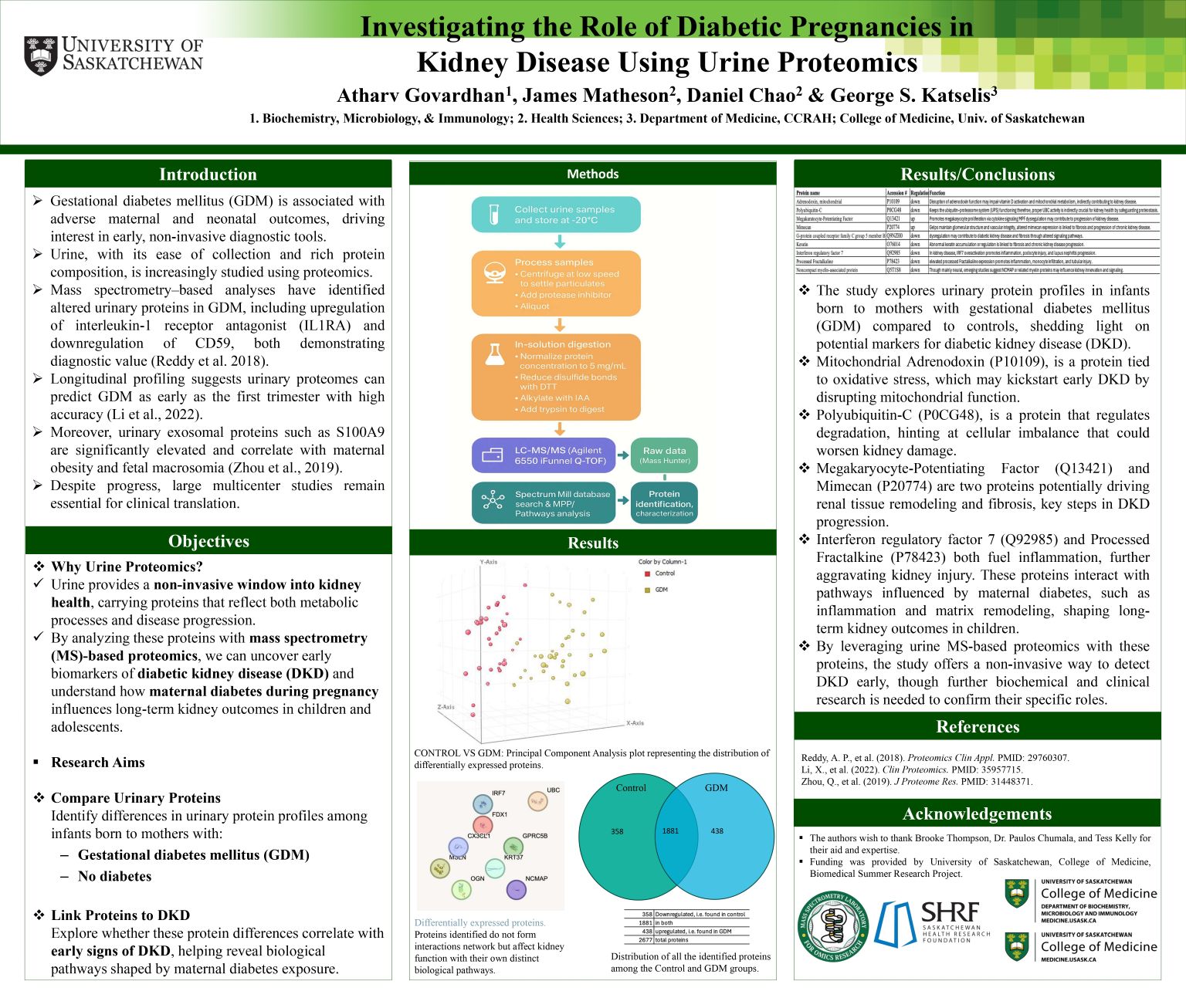
Investigating the Role of Diabetic Pregnancies in Kidney Disease Using Urine Proteomics
Atharv Govardhan
This study investigates the role of maternal gestational diabetes mellitus (GDM) in influencing early kidney disease risk in offspring through urinary proteomics analysis. Using mass spectrometry-based proteomics, we analyzed and compared urinary protein profiles in infants born to mothers with GDM against those without diabetes. With the aid of bioinformatics analyses, we identified several differentially expressed proteins, including mitochondrial Adrenodoxin (linked to oxidative stress), Polyubiquitin-C (involved in protein degradation), Megakaryocyte-Potentiating Factor, Mimecan (both associated with renal fibrosis), and inflammatory mediators such as Interferon regulatory factor 7 and Processed Fractalkine. These proteins suggest involvement in key biopathological processes—such as mitochondrial dysfunction, cellular imbalance, tissue remodeling, and inflammation—that may predispose individuals to diabetic kidney disease (DKD). Technical approaches included in-solution digestion, LC-MS/MS analysis, and database searching to identify and characterize urinary proteins. The findings highlight how maternal diabetes can shape long-term renal outcomes in children and underscore the potential of urine proteomics as a non-invasive tool for early DKD detection. Further validation is required to confirm the mechanistic roles of these proteins and their utility as clinical biomarkers.
